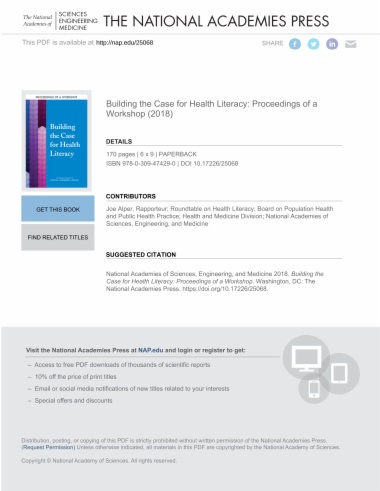

The field of health literacy has evolved from one focused on individuals to one that recognizes that health literacy is multidimensional. While communicating in a health literate manner is important for everyone, it is particularly important when communicating with those with limited health literacy who also experience more serious medication errors, higher rates of hospitalization and use of the emergency room, poor health outcomes, and increased mortality. Over the past decade, research has shown that health literacy interventions can significantly impact various areas including health care costs, outcomes, and health disparities.
To understand the extent to which health literacy has been shown to be effective at contributing to the Quadruple Aim of improving the health of communities, providing better care, providing affordable care, and improving the experience of the health care team, the National Academies of Sciences, Engineering, and Medicine convened a public workshop on building the case for health literacy. This publication summarizes the presentations and discussions from the workshop, and highlights important lessons about the role of health literacy in meeting the Quadruple Aim, case studies of organizations that have adopted health literacy, and discussions among the different stakeholders involved in making the case for health literacy.